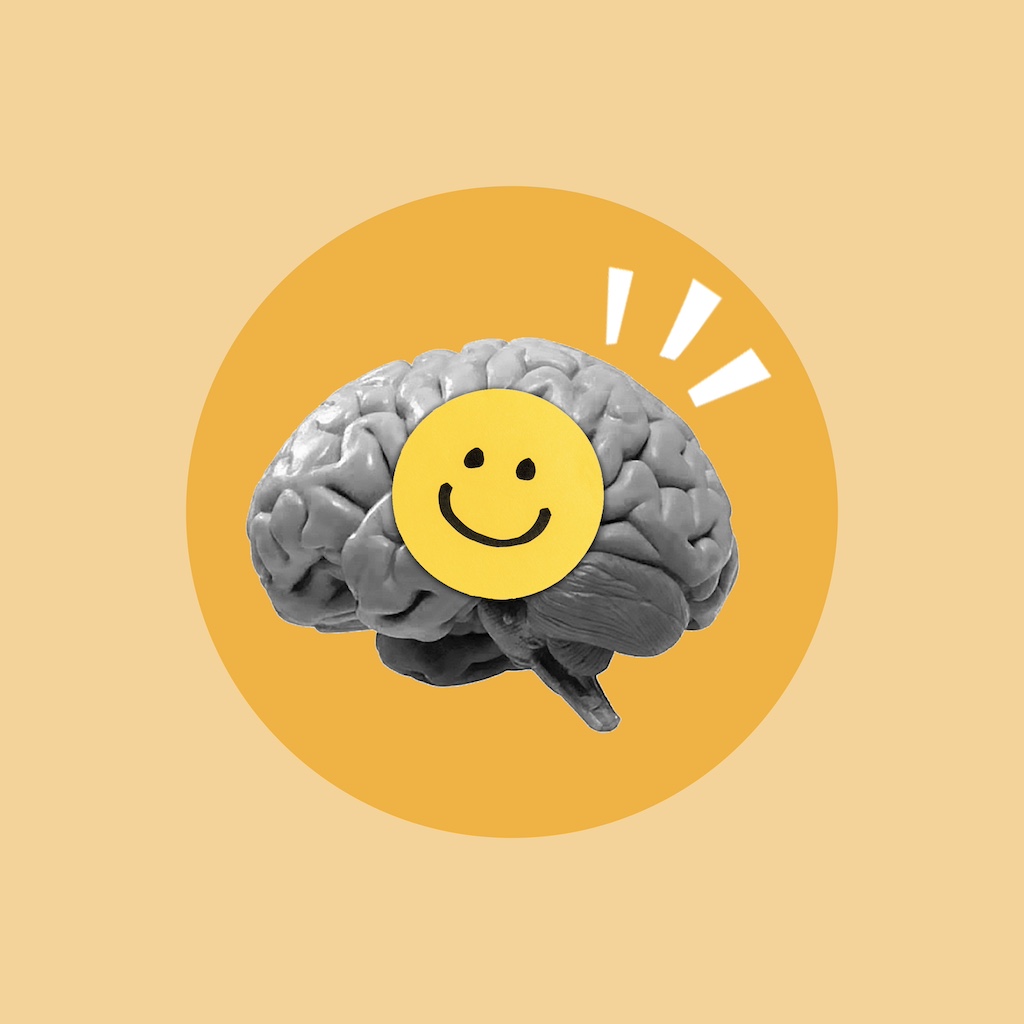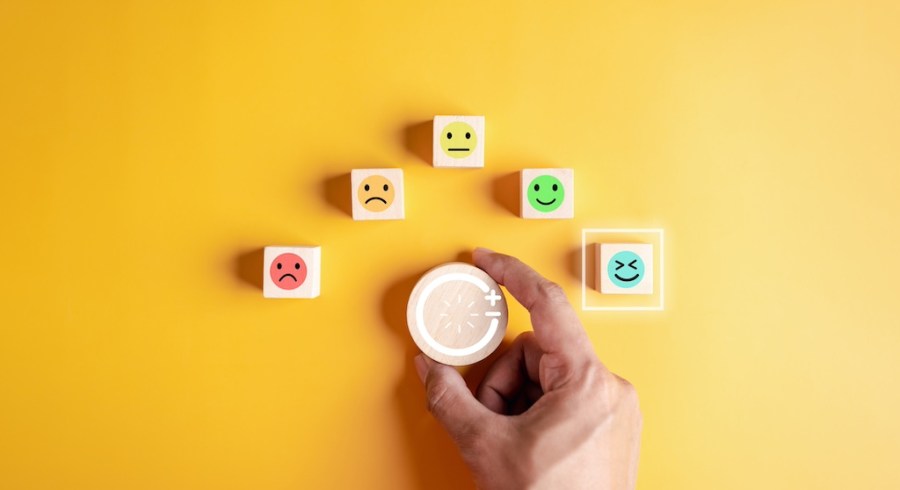Life coach David Phillips beat depression and found happiness by hacking his neurochemicals and boosting key hormones – here’s how you can do the same.
David Phillips had everything going for him. A successful coach, author and public speaker with major international clients such as Google, Microsoft, Dell, Oracle and HP. He was happily married with three kids.
Then, suddenly, in 2016, enormous work stress took its toll, and he succumbed to deep depression, confining himself to bed for two months, wishing he could sleep forever. “I realised I didn’t love anything or enjoy anything,” he tells MF. “I couldn’t relate to what people said in movies or the way my friends saw the world.”
Phillips’ depression became so bad that he felt suicidal. “That was constantly on my mind,” admits the 47-year-old. “How to [commit suicide]; when to; where to? But I never had the courage to do it.” He describes his state of mind back then as being one out of ten, where ten is “the happiest person on Earth and one was darkness.”
Encouraged by his wife, Phillips began researching ways to find happiness again. “I became obsessed by the idea of happiness,” he says. He struck upon an ingenious method that involves harnessing the power of the mind and optimising the body’s factory of neurochemicals. He calls this ‘self-leadership’: learning to choose your own emotions and your own mental states whenever you wish to.
His method completely turned his life and mental state around. Now, on that same one-to-ten scale, he says he quite often reaches ten and, on a bad day, drops down only to six. “I’m so far away from being down at one,” he says. “I’m not even close to it.”
Wishing to help others tune into his method, this year Phillips published a book, High on Life, which pinpoints the six hormones holding the key to happiness: dopamine, oxytocin, serotonin, cortisol, endorphins and testosterone. Just as recreational drugs increase the occurrence of these hormones in our brain, Phillips has developed a way to boost these naturally and harmlessly.
He encourages us to view our emotions as mostly temporary ideas that we have about ourselves and the world around us. He says we are able to choose these emotions ourselves by manipulating these hormones – essentially by tricking our brain to produce more or less of them, as required.
Emotions are primarily produced, he says, by substances called neuromodulators which push specific neurons in different directions. In turn, this process produces our experiences of having different emotions. There are around 50 different hormones and a hundred or so neurotransmitters functioning in the human body. The six hormones he has pinpointed are the ones he considers most easily manipulated, and which produce immediately noticeable effects.

DOPAMINE
“Dopamine produces motivation, momentum, desire and pleasure, as well as playing an important role in our acquisition of long-term memories,” Phillips explains. It will make you feel like “a rampant wild horse jubilantly greeting the coming spring”.
However, there are two types of dopamine: fast dopamine, which lasts a short time, and slow dopamine, which lasts a long time. Fast dopamine is created by easily accessible activities such as eating chocolate and junk food, playing video games, watching trash TV and scrolling through social media – giving you a rapid high and then a crash back down to reality.
Slow dopamine, on the other hand, requires more energy to achieve, but ultimately benefits you in the long-term. You achieve it through activities requiring more physical and mental energy such as reading books, watching educational films, solving puzzles, socialising, physical exercise – beginners should check out the best resistance band exercises – and sex.
The differences between fast and slow dopamine are similar to those between fast and slow carbohydrates: the former give you a rapid energy boost followed by a crash, while the latter give you long-lasting energy.
“The brain is wired to receive dopamine,” Phillips says, explaining how our prehistoric ancestors needed it as an incentive to hunt animals, forage for food, build homes and reproduce.
“It was a reward for growth,” he adds. “But now that’s been hijacked because you can just sit with your smartphone and get the same kind of dopamine injections that a person got 30,000 years ago. The trouble with that is, scrolling through your phone requires no energy at all. The brain is energy-saving by nature, so the brain says, ‘I can get equal amounts of dopamine from looking at social media as I would get going to the gym, but it’s much easier. Give me as much dopamine as possible with the least amount of energy required. That’s the best equation – that’s why you get hooked on fast dopamine.”
Phillips admits he’s just as susceptible to fast dopamine as everyone else. However, he controls it by trying to use his mobile phone less, by switching off the notifications on his phone, and by watching TV series over several weeks rather than binge-watching them. And he tries to concentrate on enjoying hard work rather than thinking only of the reward he will give himself once he has completed that hard work.
OXYTOCIN
This is the hormone that allows us to feel presence, completeness, trust, compassion, connectedness and generosity. Phillips pinpoints multiple ways in which we can boost oxytocin. There is the awe we feel when we experience nature, art or music. Activities such as hiking through a forest, or attending a rock concert or a political rally all work their magic.
Then there’s the empathy we feel when we think of our loved ones. Physical closeness to other people, through touching, hugging and holding hands, is vital too. “A lack pf connection with other human beings has severe impacts on our mental health,” he adds. “We saw that during Covid, for instance.”
Phillips champions a traditional Hawaiian form of healing called ‘Ho’oponopono’, which neutralises guilt through reconciliation and forgiveness. ‘It involves uttering the following four incredible phrases,’ Phillips writes in his book. ‘I love you; I am sorry, please forgive me; thank you.’
Other ways to boost oxytocin include soothing music, a hot bath, a cold swim, and expressing gratitude.
SEROTONIN
Serotonin helps us feel contendedness, self-esteem and harmony. According to Phillips, ways to boost it include learning to love oneself, to stop criticising oneself for mistakes, and to be less judgemental. Sunlight is crucial for maintaining serotonin levels, which is why some people suffer from seasonal affective disorder during the winter months. Fast food decreases serotonin levels, while slow carbohydrates can increase them.
Mindfulness is important, too. Phillips encourages us to enjoy our sensations of hearing, touch, sight, smell and taste. And of course, exercise, sleep and stress avoidance all contribute too.
CORTISOL
Under stressful situations, the body’s adrenal glands release cortisol into the bloodstream, releasing glucose and giving you the energy to deal with the stress, and acting as short-term anti-inflammatory. Phillips says limited amounts of stress make us feel alive. Conversely, chronic stress is extremely bad for our health. For that reason, of all six of Phillips’s hormones, cortisol is the one we need to limit rather than boost.
To do this, Phillips encourages us to write down a list of all the stressors in our lives, with the aim of eliminating or resolving them if possible.
If you feel wracked by nerves in stressful situations – public speaking for example – try to trick your mind into feeling it is excited rather than nerve-wracked. Other ways to reduce stress include meditation and controlled breathing, as well as all the methods for increasing oxytocin – since it is this hormone which provides powerful stress relief.
Exercise is vital, too. “But, when it comes to exercise, the most important thing is to do whatever works for you,” he adds, “because that’s way better than not doing exercise at all. If consistent exercise isn’t to your taste, then go excessive.”
He adds one word of caution: “The only time you shouldn’t go excessive is if you have high stress levels, because excessive exercise increases stress. If you’re nearing being burned out, do not excessively work out because you will accelerate the burnout.”
ENDORPHINS
“Endorphins are the body’s home-grown morphine,” Phillips says, explaining how they make you feel “high on life”. Pain is one quick way to experience this hormone and, indeed, if you stub your toe or bang your head, a few seconds later you’ll notice a near-euphoric feeling as your body produces endorphins. Phillips explains how it’s the same euphoria you get after the pain of cold-water bathing, or getting in an ice bath (like The Edge Tub Elite).
Other endorphin-producing activities include eating spicy food or chocolate, exercise, music, dancing, laughter and smiling. Of the latter, he stresses how you need to achieve what’s known as the ‘Duchenne smile’. Named after the French neurologist Guillaume Duchenne, this type of smile engages the muscles around the eyes as well as around the corners of the mouth.
TESTOSTERONE
Testosterone is the hormone that amplifies behaviours you may already employ to improve your social status. So, if you use humour, or generosity, or creativity to heighten your social status, testosterone will make you funnier, more generous or more creative.
Phillips pinpoints several ways we can increase our testosterone naturally. These include winning at sport or games, listening to loud music, and watching movies whose protagonists we can relate to.
Testosterone can hugely improve your performance in job interviews, work presentations, negotiations and social situations. You can use aggression to boost it. ‘One trick for using aggression to raise your testosterone can be to go to the bathroom before an important meeting and think aggressive thoughts, ideally complementing those with menacing body language and intense music,’ Phillips writes in his book. ‘If nobody will hear me, I’ll often yell aggressively while doing that, in order to maximise the temporary aggression and boost my testosterone even more.’ However, he also warns that uncontrolled aggression can lead to problems.
When it comes to work presentations or public speaking, you can also use body control to increase testosterone and confidence. Phillips adds: “Hold your head up high, plant your feet parallel to each other, use your hands rather than allowing them to lock up, avoid swaying or twisting your hips, train yourself to eliminate filler noises from your speech, and speak up loud and clear.”
Eight years on from his spiral into depression, David Phillips is now a changed man. He hopes his methods of naturally harnessing the power of these six hormones will help countless others. In the old days he believed that success meant working hard for long hours, in order to amass wealth and own lots of things.
‘That’s absolute bullshit,’ he concludes at the end of his book. ‘Success is becoming the best version of yourself. It’s choosing actions and thoughts that help you feel good about yourself. When you’ve attained that state, there’s nothing you can’t achieve.’








